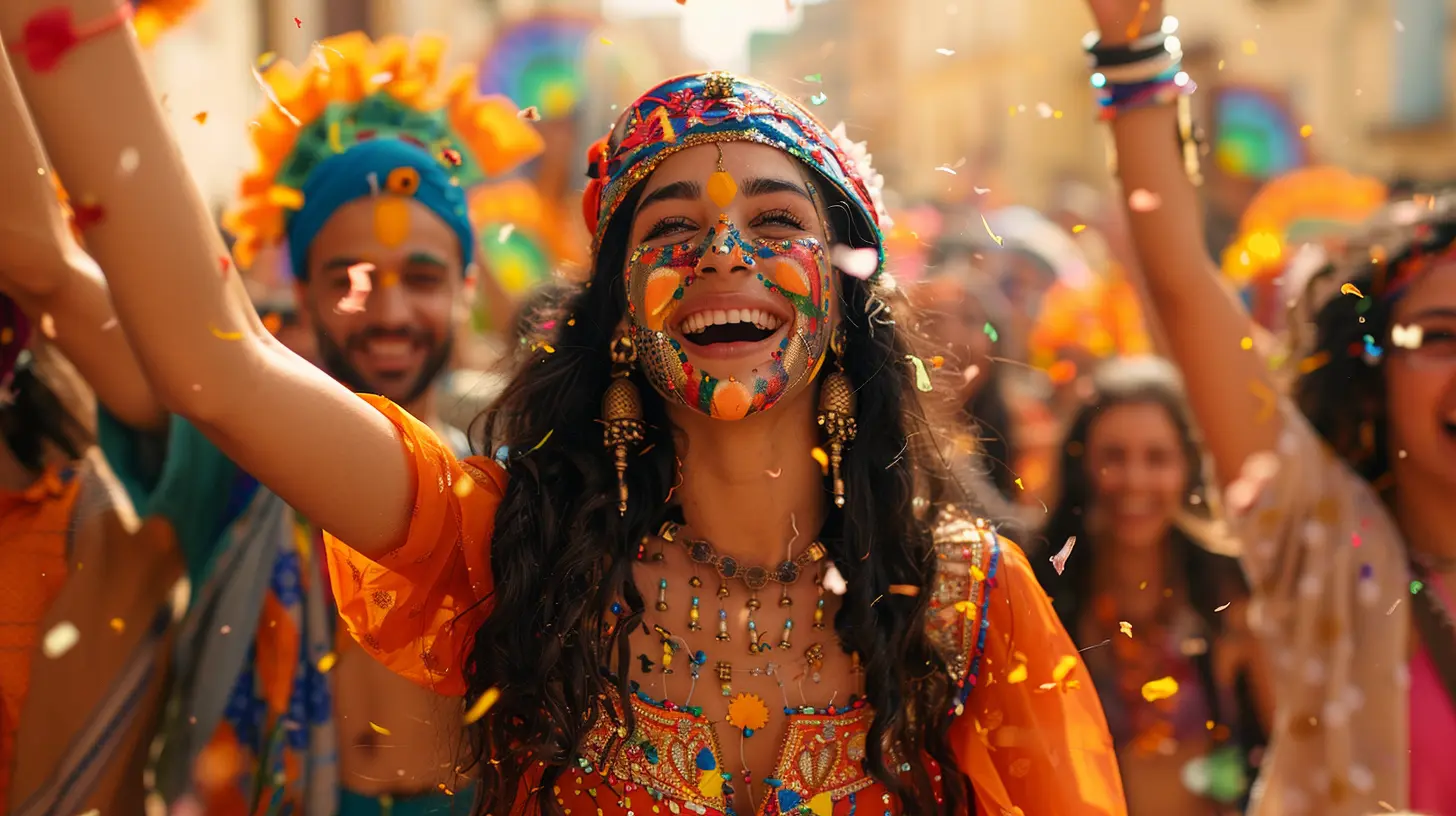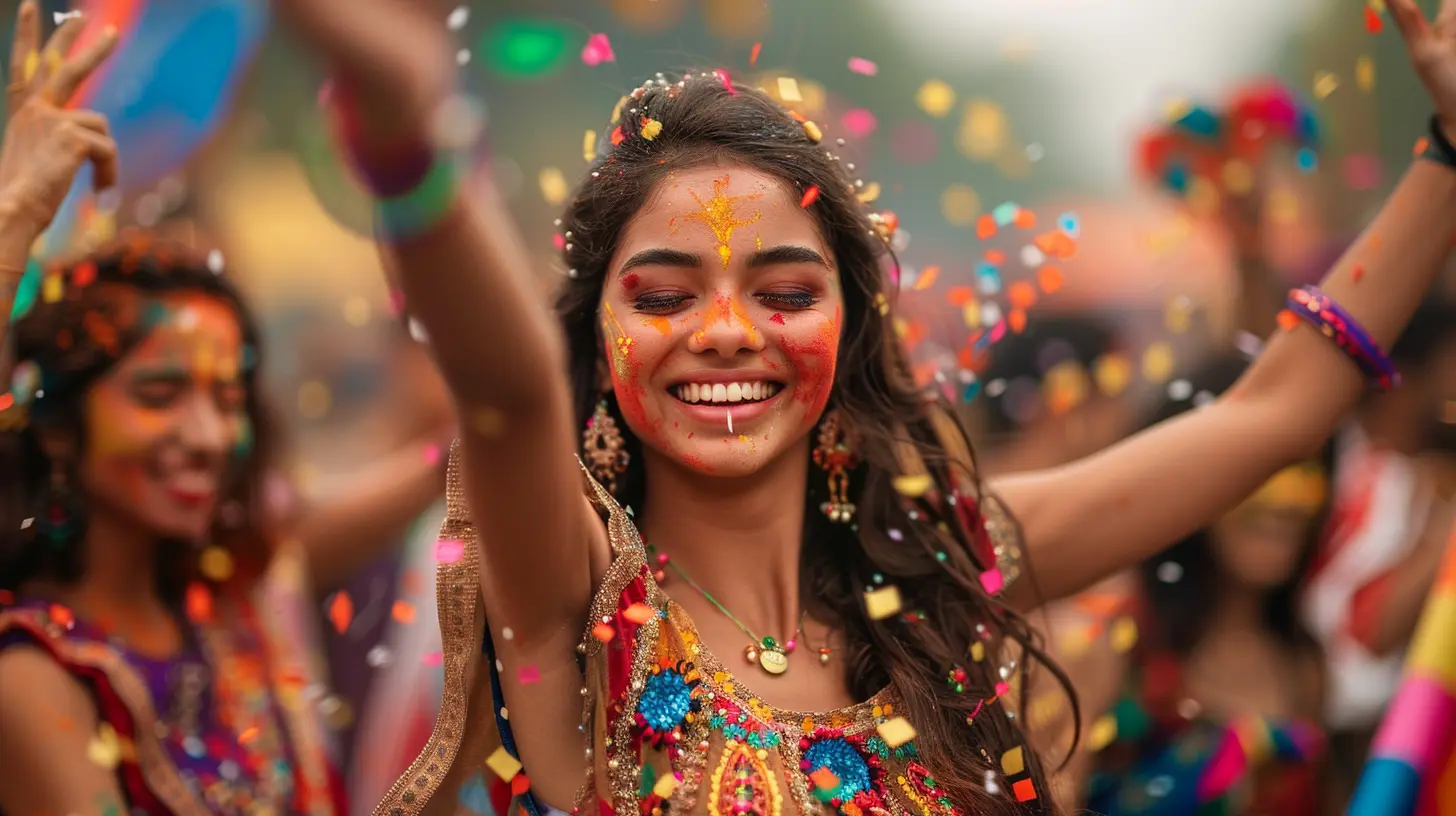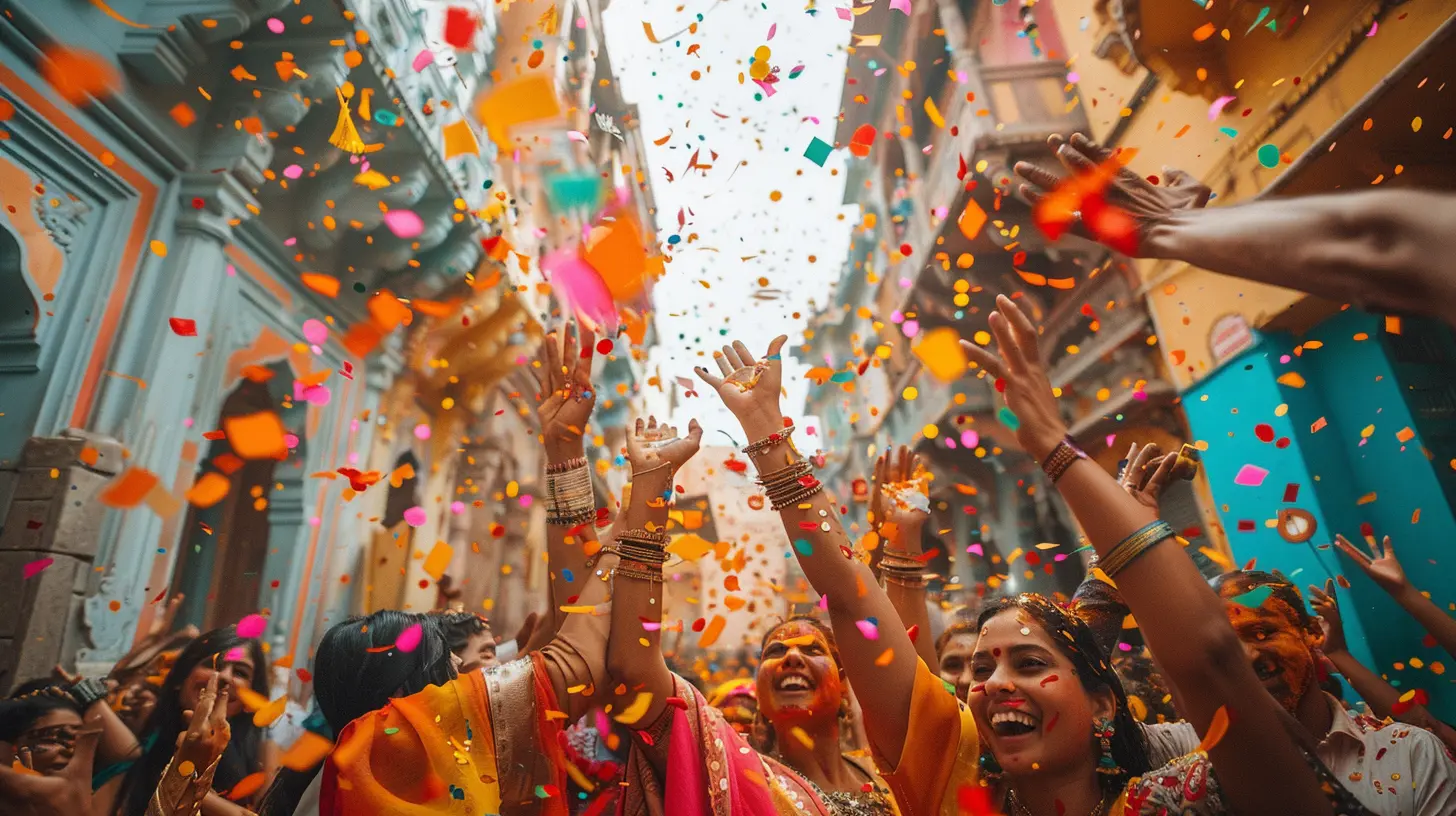Festival Etiquette: How to Join in the Celebrations Around the World
18 September 2025
Festivals are the heartbeat of cultures across the globe. They bring people together in celebration, honoring traditions, deities, nature, and even peculiar customs (yes, we're looking at you, Spain’s La Tomatina). But before you grab your backpack and dive into the world’s most exciting festivals, there’s one thing you should get right—festival etiquette.
Each culture has its unspoken rules, and breaking them can turn your festive experience from amazing to awkward real quick. So, let’s break down how to respectfully participate in festivals worldwide without unintentionally offending locals or sticking out like a sore thumb.

1. Do Your Homework Before You Go
The last thing you want is to show up at a festival and realize you’re completely clueless. Every celebration has its customs, and some even come with do’s and don’ts that could make or break your experience.- Is it a religious festival? If yes, be mindful of dress codes and behavior.
- Does the festival involve specific rituals? Learn about them so you don’t unknowingly offend anyone.
- Are there unwritten rules? For example, in Japan’s Hanami (cherry blossom festival), people reserve picnic spots respectfully and don’t leave trash behind.
A little research goes a long way in ensuring you show up prepared and respectful.

2. Dress the Part (Without Cultural Appropriation!)
Dressing appropriately isn’t just about looking good—it’s about respect. Some festivals require specific clothing, and others come with strict dress codes.- If you’re attending India’s Holi, wear white clothes you won’t mind ruining.
- Heading to Thailand’s Songkran Water Festival? Swimsuit-like clothes might seem smart, but keep it modest—you're still in a country that values conservative dressing.
- Attending a religious festival? Covering shoulders and knees is usually a safe bet.
One more thing—there’s a fine line between appreciation and appropriation. Wearing a sari to an Indian wedding because it's encouraged? Great! Dressing in sacred attire as a fashion statement? Not cool.

3. Respect Local Customs and Traditions
Every festival has its own set of traditions, and not following them can be a major faux pas.- At Thailand’s Yi Peng Lantern Festival, releasing lanterns into the sky is magical—but remember, it’s a spiritual event, not just a cool Instagram moment.
- During Mexico’s Día de los Muertos, people honor deceased loved ones. It’s a time for celebration, not a Halloween-style costume party.
- Spain’s La Tomatina is all about throwing tomatoes, but squeezing them first (to avoid injuries) is a must.
If the locals are doing something a certain way, follow their lead. When in doubt, ask!

4. Participate, But Don’t Overstep
Getting involved is part of the fun, but there’s a difference between enjoying a festival and making it about yourself.- If it’s a dancing festival like Brazil’s Carnival, join in—but don’t shove locals aside to get the best spot.
- In religious festivals, observe and participate respectfully. India’s Diwali involves lighting lamps and fireworks, but always follow local safety guidelines.
- Japan’s Obon Festival involves honoring ancestors. You can participate, but be mindful that it’s a deeply personal event for many families.
Engage, but don’t try to become the center of attention.
5. Be Mindful of Photography
Yes, festivals make for incredible photos, but some moments shouldn’t be turned into a photoshoot.- Always ask before taking pictures of people, especially in religious or sacred festivals.
- Avoid being intrusive—nobody wants a tourist’s camera shoved in their face while they’re performing an important ritual.
- Some festivals discourage photography altogether, like Bhutan’s Tshechu, where religious dances are sacred performances.
When in doubt, put the camera down and soak in the moment instead.
6. Food Etiquette Matters
Different festivals bring different culinary experiences, and knowing the etiquette can save you from awkward moments.- In Japan’s Cherry Blossom Festival, sharing food is common—don’t take the last piece unless you're offered.
- During Ramadan’s Eid al-Fitr, refusing food from a host can be seen as rude. Even if you're full, a small bite is polite.
- If you're at a beer festival (like Germany’s Oktoberfest), know the local drinking customs. Germans toast with eye contact—it’s a must!
Enjoy the food, but always respect cultural dining norms.
7. Respect the Environment
Festivals can generate a lot of waste, but many cultures emphasize cleanliness and respect for nature.- Japan’s Hanami encourages picnics under cherry blossoms, but leaving trash behind? Huge no-no.
- Burning Man in the U.S. promotes a Leave No Trace principle—whatever you bring, you take back with you.
- In India’s Kumbh Mela, millions gather to bathe in the Ganges, but respecting the river by not polluting it is crucial.
Enjoy the festivities, but don’t leave a negative mark behind.
8. Stay Safe and Follow Local Laws
Some festivals get wild, and safety should always be a priority.- If you're at Spain’s Running of the Bulls, know that it’s dangerous. If you're not prepared, maybe stick to watching.
- At large festivals like Carnival in Rio, be mindful of pickpockets. Keep your belongings secure.
- Following local laws is non-negotiable. In Dubai’s New Year’s Eve celebrations, public intoxication can land you in serious trouble.
Festivals are fun, but not at the expense of your safety.
9. Be Open-Minded and Go with the Flow
Not everything will go as planned, and that’s okay! Sometimes, the best festival experiences come from unexpected moments.- Maybe the parade starts late. Maybe it rains during an outdoor festival. Maybe a local invites you to a lesser-known part of the celebration.
- Festivals are about connection—meet people, try new foods, dance, and embrace the experience.
Sometimes, letting go of rigid plans leads to the most unforgettable moments.
Final Thoughts
Festivals are an incredible way to immerse yourself in a culture, but diving in without considering festival etiquette can lead to some cringeworthy moments. A little preparation, respect, and an open mind go a long way in ensuring you have an unforgettable (and respectful) experience.So, whether you're throwing tomatoes in Spain, lighting lanterns in Thailand, or dancing your heart out in Brazil, remember—celebrate, respect, and most importantly, have fun!
all images in this post were generated using AI tools
Category:
Cultural EtiquetteAuthor:

Reed McFadden
Discussion
rate this article
1 comments
Fleur Nelson
What a delightful guide! Embracing local customs can truly enrich the festival experience. Can't wait to explore these tips and celebrate cultures around the world—let the festivities begin!
September 24, 2025 at 3:51 PM

Reed McFadden
Thank you! I’m glad you found the guide helpful—enjoy your cultural explorations and festive celebrations!


